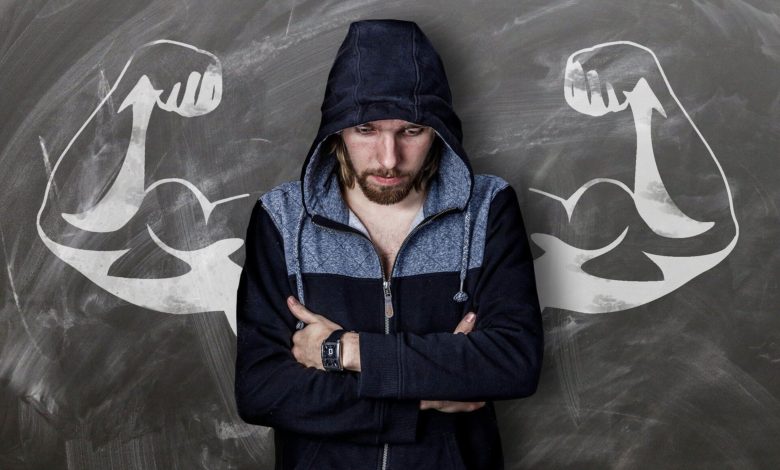What is Body Image and How Is It Developed?

Body image is a concept that expresses how an individual sees his body and how attractive he feels. Body image is not just a mirror image; it also includes memories, assumptions, and generalizations.
Throughout history, people have emphasized the beauty of the human body. Society, media and popular culture; It allows a person to see his own body in a certain way, almost shapes the body. The criteria determined by the society sometimes disturb the individual and cause him to exhibit unhealthy behaviors.
What Does Body Image Mean?
A positive person feels peaceful and happy. Body image refers to a person’s emotional attitudes, beliefs and perceptions in their own body and is defined as a multifaceted psychological experience. Body image is shaped by the following emotions and thoughts:
- What he believes about his appearance
- How you feel about body image
- How they perceive and control their body while in motion
- How he thinks about his body, including their height, weight, and shape.
These thoughts can be positive or negative. A negative body image is often linked to disorders such as body dysmorphic disorder (BDD), body integrity identity disorder, and eating disorders.
What Is a Positive Body Image?
Studies show that the attitude towards body image remains constant throughout life. A person with a positive body image has a correct and clear perception of how others will accept it, body shape and appearance. The person is happy with their appearance and feels good about their body and appearance, even if it does not fit the shape that society, family or friends suggest. How they look doesn’t affect their personality and they take pride in how they look on their body and that they are safe. A well-balanced diet and exercise and a healthy lifestyle can contribute to a positive body image. Part of having a positive body image is the individual’s ability to distinguish between self-worth from appearance. People who realize that self-worth is not dependent on appearance tend to feel good about how they look.
What Is A Negative Body Image?
A negative body image can arise when a person feels that their appearance does not match what society, family, and friends expect. They may compare themselves to others often and feel inadequate in doing so. They may not feel embarrassed or confident. Usually they feel physiologically uncomfortable and awkward. The individual often has an unrealistic view of themselves and when looking in the mirror they can see parts of their body in a distorted, unrealistic way. For example, a woman with a normal body mass index may always see herself fat.
Some people may develop a disorder with body dysmorphic disorder (BDD). A person with BDD sees his body or part of his body negatively. He or she may ask the cosmetic surgery to correct the size of the nose. This can be dangerous if it leads to mental health problems such as depression, and unsafe weight loss habits such as an unnecessary surgery, accident dieting can follow. A man may be preoccupied with using hormones that are not suitable for building muscle. Researchers from the University of Illinois at Chicago found that young women of normal or low weight, who assume they were overweight, were more likely to have unsafe weight loss behaviors than those who could accurately assess their weight status.
Where Does a Negative Body Image Come From?
Society does not create isolation in body image and culture, family and friends convey positive and negative messages about bodies. A person with a negative body image may worry that it does not match the images promoted by the public. Society, peers, and family members can influence a person’s body image. They can encourage men and women, even young boys and girls, to believe that it is an ideal body. The image is usually unnatural. Ads recommend that all men have strong muscles and all women are slender. It; it is not always realistic, because everyone is different.
Since those exposed to this ad clinically compare themselves to professional fit models and TV stars who have undergone aesthetics, some feel pressured to set unrealistic and unnatural goals and set an unhealthy example by using mannequins to display them in fashion. The effects of this can affect both physical and mental health in a susceptible individual. Changes in the body with age can affect the body image of this person, as well as illness and accidents. A mastectomy or limb amputation for breast cancer can cause people to rethink how it looks to themselves and others.
According to the studies; Many people with obesity have a negative body image, but successful weight loss and interventions can improve body image. In addition, individuals experiencing emotional insecurity are more sensitive to developing negative body image. Studies have shown that girls and women with more flexibility, linked to family support, gender role satisfaction, replication strategies, fitness and well-being, are more likely to have a positive body image.
Negative thoughts and feelings can also be sustained through interactions with others. For example, this often happens in a conversation about obesity when women come together or when comments are made about how overweight people see or feel themselves. It can also lead to negative emotions, low mood, and negative eating patterns.
What Is Male and Female Opinion About His Images?
Men are also interested in body image. It is generally thought that women are more dissatisfied with their bodies than men. However, there are studies in which men are also concerned about their appearance. According to one report, 95 percent of college students were found to be unhappy with some aspects of their bodies. Studies show that there are many similarities between a negative body image and shared many similar factors in men and women. However, men tend to be quieter about the discomfort they have with their bodies.
A 2004 study showed that women’s attitudes towards body image tend to remain constant throughout their lives, but shape, weight, and appearance decrease with age.
Tips for Improving Body Image
Here are some tips for improving how you feel about your image:
1. Give thanks for thinking about what your body can do. Run, swim, dance, sing, etc. Appreciate what you can do like.
2. List 10 things you like about yourself and pin them where you can see them.
3. Remember that beauty is not just about looks.
4.In the mirror, see yourself as a whole person, not as a nose or hip
5. Think positively and turn your negative thoughts into positive with positive messages.
6. Wear comfortable clothes that suit you
7. Actively criticize community messages and images that make you feel like you should be something different.
8. Make use of your free time by creating interests for voluntary social media projects, exercising or a hobby.
9.Avoid talking about obesity and encourage your friends to do the same.
10. Do something nice about your look, like a massage or a haircut.
Body Image and Physical Exercise
Exercising can help a person have greater confidence in their strength and agility and contribute to maintaining a healthy weight and body size. It can also reduce anxiety and depression. However, people also exercise for different reasons. In a 2015 study, researchers found that people who exercise for functional reasons tend to have a more positive body image in order to stay fit. Those who exercise to improve their appearance tend to feel less negative about their body.





